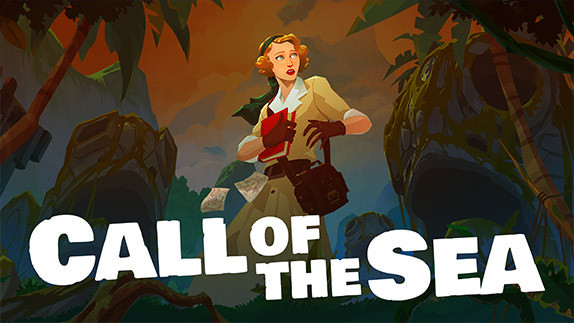Black Mirror Review

 By Kevin Mitchell | December 4, 2017
By Kevin Mitchell | December 4, 2017
A re-imagining of the gothic-horror series that first released over ten years ago, Black Mirror continues the classic feel steeped in the styling of both Edgar Allan Poe and H.P. Lovecraft. Although you are given direct control of David Gordon, the game's protagonist, it still plays like a classic point-and-click adventure game. Returning to his ancestral home in Scotland after the gruesome death of his father, David must learn more about his estranged family's past and a curse that led to the mysterious deaths surrounding his father and grandfather.
Environmental interaction and solving puzzles serve as the cornerstone of the experience. After arriving home for the first time to your remaining family members and servants, you spend your first night exploring the dark mansion by candlelight. Being raised in India, you yearn to learn more about your new role as head of the Gordon family and what drove your father into madness. Of course, your grandmother, the lady of the house, still lives there and doesn't appear to be keen on the presence of an outsider (even if you are family). While it will take you a little over five hours to complete the main story, there are missable achievements based on your decisions and pieces of photos that can be collected and put back together.
I initially reveled in the prospect of exploring a rather expansive Victorian-era mansion, but the game's technical prowess hampered any excitement. Venturing through the hallways and various rooms only lit by a single candle presents an amazing sense of dread. However, having to wait a copious amount of time every time you enter or leave a room ruins the atmosphere. Even entering an empty hallway, whose only purpose is to provide entry into another larger room, requires a loading screen. Clunky walking mechanics mean you'll accidentally re-enter previous areas by mistake, resulting in additional loading. Considering how you are left to explore the mansion freely, with most of the time no discernible hints at where you need to go to advance the plot, you'll be spending more time on the loading screen than actually exploring the mansion.
There are plenty of small details in each of the rooms, such as passages written by both Edgar Allan Poe and H.P. Lovecraft that can be found in the multifloor library. Your view is confined to the fixed camera placements, but you have a tiny amount of freedom to shift the perspective. It does wonders for puzzles but can cause confusion when moving around the mansion. The puzzles are mostly enjoyable, letting you manipulate a uniquely designed key to open various doors and locked compartments. Another puzzle sees you studying designs on different sides of a desk in order to unlock a newly discovered area. These environmental puzzles were a delight to solve, as they force you to observe nearby locations for clues; however, dealing with the apparitions throughout the narrative can be frustrating. During these sequences, you must follow the ghosts' movements and click on the glowing location at the proper moment. Get too close or miss your chance and the visions of the past become malevolent, leading to a game over screen—something I wasn't expecting.
The narrative takes quite some time to get moving, and by the time you reach the climax, you'll most likely have some questions of your own. There are a handful of twists that occur, and for the most part, I was surprised at the outcome, even if the characters feel a bit one-dimensional. You are presented with different options during conversations, but in the end, you can simply click through each one without having to worry too much about repercussions. The variations are slight and may alter a future conversation but don't have any long-reaching effect on the plot as a whole. It's a shame that the animation during the conversations and accompanying cutscenes are poorly handled. While I thoroughly enjoyed the voice acting from the cast, the character models appear lifeless, with even worse lip-syncing. Not to mention, it's a common occurrence to have characters warp into new positions or for the action sequences to feel disjointed.
Simply Put
Black Mirror attempts to bring a horror-themed point-and-click adventure game to a new audience but is hampered by glaring technical setbacks. On more than one occasion, David had become stuck, only to seemingly slowly rotate himself in place with no way to free yourself. During one of the game's pivotal cutscenes, the game crashed with an alarmingly loud buzzing noise before crashing back to the Xbox home screen. Exploring the eerie mansion and the accompanying grounds should be more enjoyable, but the frequent loading screens ruin the experience. If you can overlook these issues, I found the characters and the narrative quite compelling, but at the same time, there is no reason to play through the game multiple times.
Note: Black Mirror was reviewed on Xbox One. A digital copy of the game was provided by the publisher/developer.




